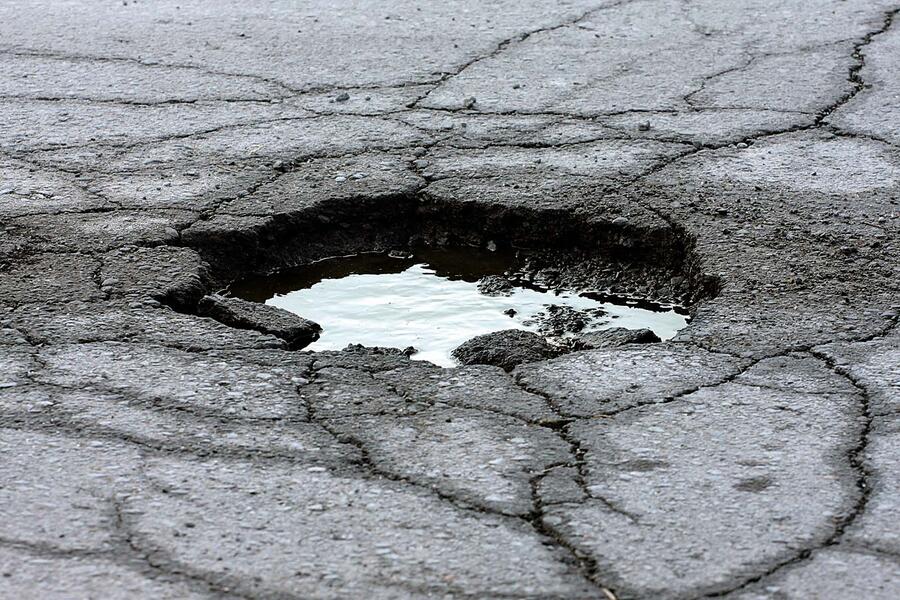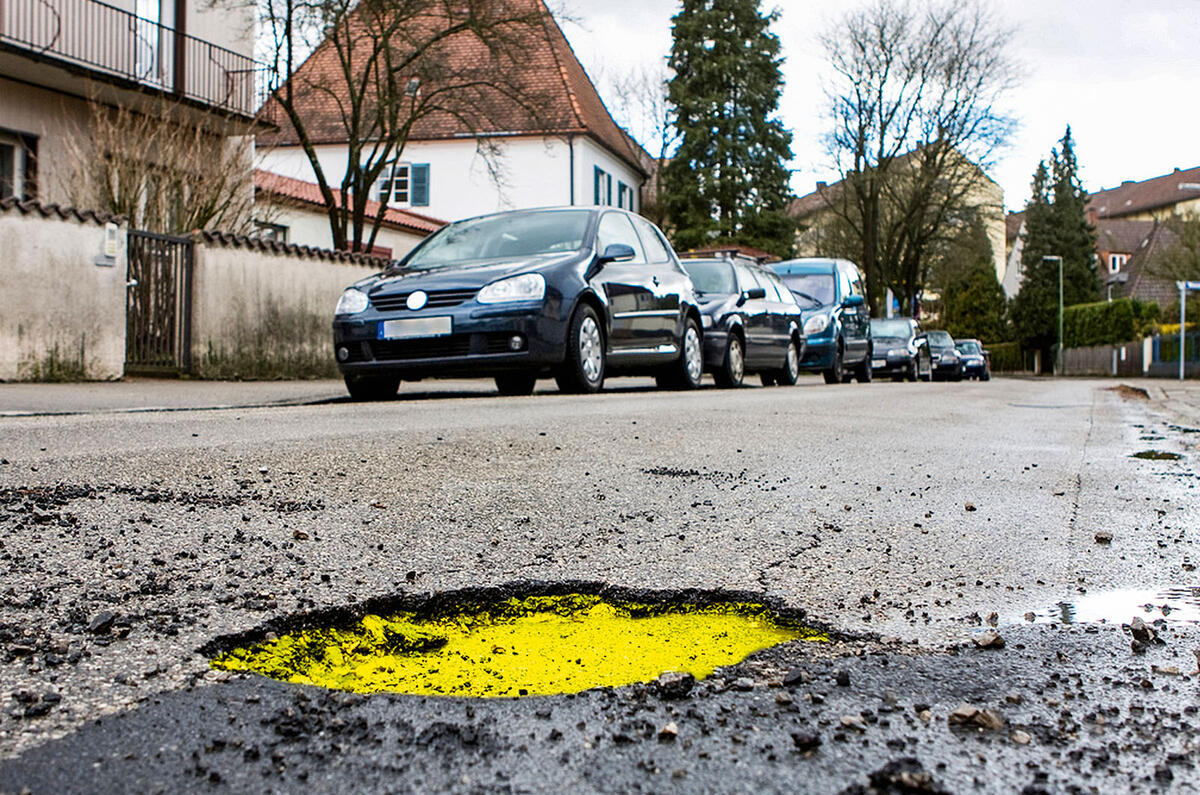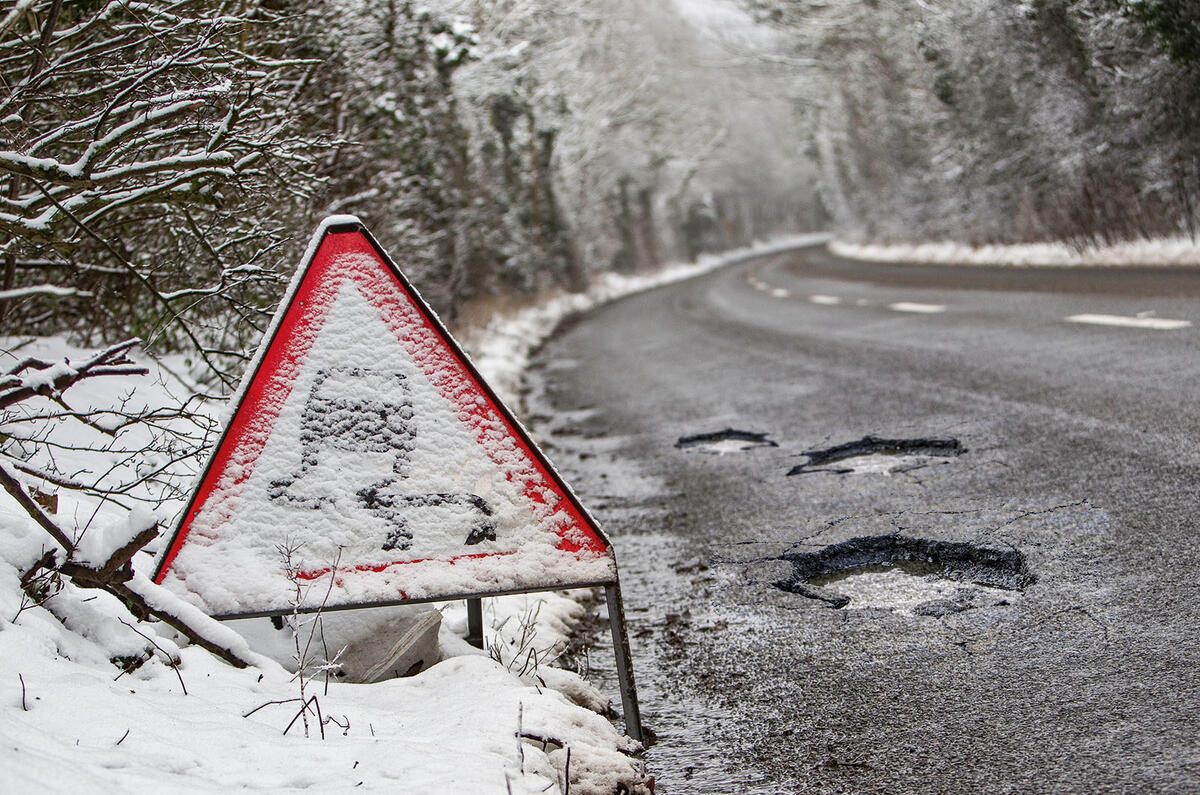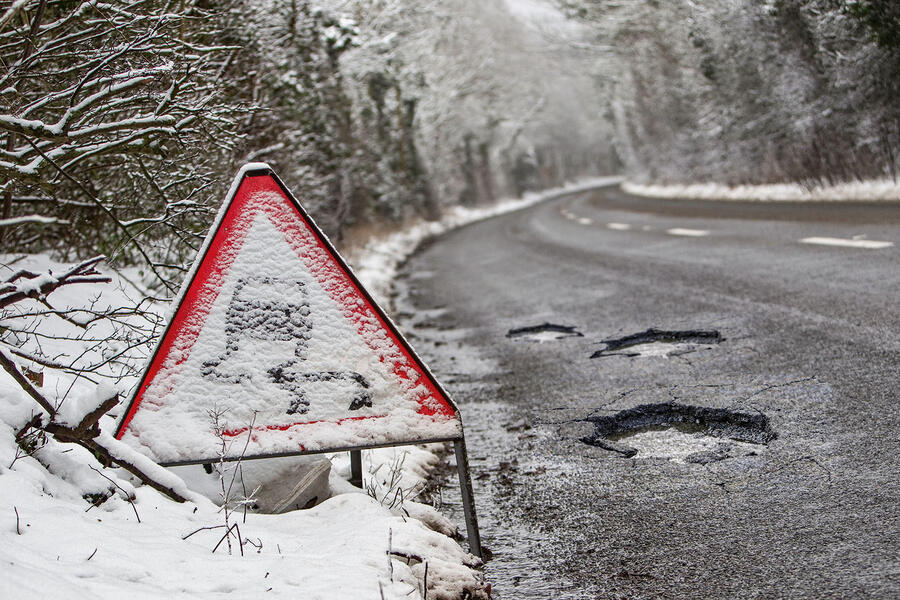An additional 340,000 potholes could have been repaired using compensation payments made by local authorities in England and Wales, the Annual Local Authority Road Maintenance survey has revealed.
In the past year, £93.7 million has been spent by authorities fixing more than 1.4 million potholes across the UK, with the average cost standing at £66.93, research from Citroen found. Over the same period, £22.7m in compensation was paid out to affected road users.
These costs include the £11.6m spent on payouts themselves and £11.1m spent on staff handling claims. A total of £139.9m has been spent on damage compensation since 2017.
The average lifespan (before resurfacing) of UK roads is currently 116 years, representing a 46-year increase from the 70 years estimated last year. This, coupled with the increasing average cost of filling a pothole (up £3.75 since 2022) has resulted in the worsening condition of UK roads.
Police forces across England and Wales have also recorded 1114 accidents that resulted in 16 deaths and 355 serious injuries because of "defective road surfaces", according to the Department for Transport (DfT).
It has also been found that the cost of putting roads back into a cost-effective, manageable condition would be £14.2 billion, up £1.56bn since 2022.

A DfT spokesperson said: “We’re investing more than £5bn from 2020 to 2025 to maintain local roads, with an extra £200m announced at the Budget, which will help fix millions of potholes a year, making journeys smoother and safer for everyone.”
This comes after recent news that soaring inflation and the squeeze on council budgets are set to make a dent in the roads maintenance budget.











Join the debate
Add your comment
Due to this tarmac being a lot more porous than the smooth kind used on the continent, water easily infiltrates, expands when freezing, and breaks the tarmac creating patholes.
However, nobody dares to switch to better quality tarmac for the fear of being sued.
The same health and safety vicious circle creates many other problems and costs is billions every year.
I guess nobody foresaw the impending decline coming of our Roads, the lack of materials essential to fixing them is no longer made in the UK in sufficient amount to supply as and when needed, the material used today doesn't seem to have advanced to withstand our Winters good or bad, and nobody has the answers, yes, maybe it's a result of how the World is going at the moment, I do hope when things start to get better that lessons have been learnt.
Some people live in their own little universe but that doesn't stop them from emitting philosophical opinions.
Funding cuts? Funny that, here's me thinking I paid more fuel duty and road tax this year. Guess I must have been mistaken.
Please correctly phrase this - it is not funding cuts, it's spending cuts, and that's a decision local make to ensure there's enough cash to stuff their pensions with, and to buy ever more expensive home workstations for their idle 'work' from home staff.
The biggest issue I see are useless local councils that allow those who dig up the highways to throw them back together. It's always those areas that break up and cause the massive potholes.
Your comment makes no sense, and suggests you haven't read the article properly. You may well have been spending more in fuel duty and road tax in the last year but that makes no difference to what local authorities have to spend. None. It's money to HM Treasury. The amount of money going to local authorites - for any purpose - has been cut (32% actual, year-on-year reduction since 2010) and specific allowances have been cancelled out by actual reductions in finance. All this compounded by the fact that other routes to funding have been removed from local authorities, makes for a dire picture.
It's alluded to in the article, but 60% of bitumen used in Europe comes from Russia. Problem. The supply has been cut off, and what remains is being rationed. Second problem. What is available is being shared within a cooperative market. 3rd party nations are left hoping for the spare. Nevertheless, what comes the UK's way costs 50% more than it did this time last year, in real terms, and costs even more adjusted for inflation. The £2.5 billion over five years fund, was always a paltry, diminishing amount and became ever more so.
What is needed is a grown up governemnt that understands society is built from the ground up, literally, and not from the tax-avoiding top down.
Again, your final paragraph suggests you didn't read the article properly. Councils HAVE NO POWER to enforce the quality of repairing of roads after they have been dug up by third parties. Only in very specific circumstances can LAs instruct developers to fully resurface sections of road, and that is only where a development forces a new road connection or change in alignment of a road.
Good to see reasoned argument.